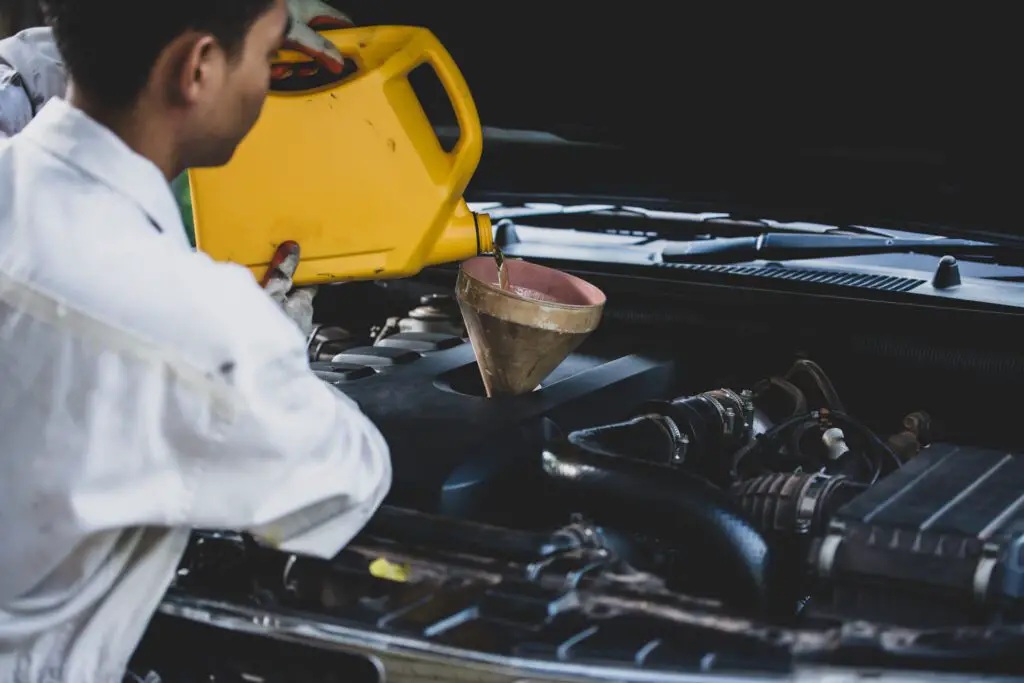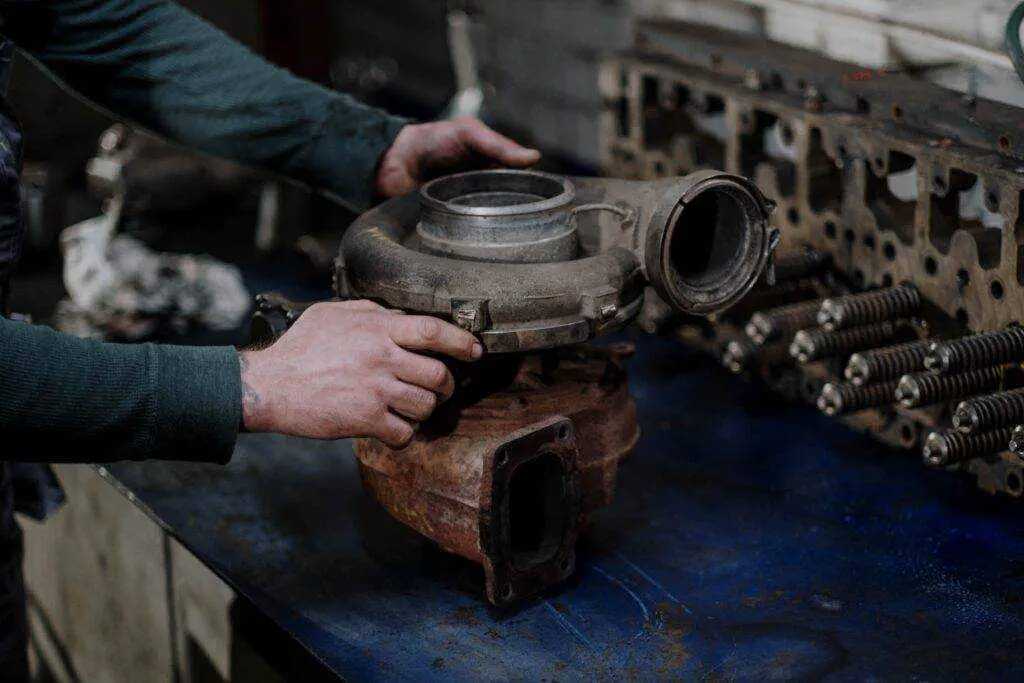You hop in your car, turn the key, and notice the engine feels a little sluggish accelerating away from a stoplight. Could it be time for an oil change? Does Needing an Oil Change Affect Acceleration? ? Let’s take a deeper dive and find out.
Engine oil is the lifeblood of your car, so it’s no surprise that dirty, old oil can hinder performance. But to understand why, we first need to cover what oil does and why changing it matters.
Engine Oil 101 – A Quick Chemistry Refresher
Before we get into the nitty-gritty, let’s start with Oil Change 101:
- Engine oil reduces friction and wear between moving parts like pistons, bearings, and cylinders. Less friction = better efficiency.
- It also dissipates heat and prevents engine components from overheating. After all, engines do run hot!
- Oil keeps critical parts clean by suspending dirt and contaminants until drained out. It’s like a therapeutic detox for your engine.
- It also seals the piston rings to provide compression for combustion. More oomph = better acceleration.
Does Needing an Oil Change Affect Acceleration? So in a nutshell, oil makes sure your engine can operate smoothly without rattling itself to pieces or overheating. Now let’s see why changing it matters.
Why You Need Regular Oil Changes
Engine oil is a consumable that gets used up:
- Heat and combustion byproducts thin it out and degrade additives over time.
- Dirt and metallic particles from wear get suspended in it, making it gritty.
- Fuel residues dilute it and make it less effective at lubricating.
Used oil loses its protective qualities, leading to reduced engine performance. And sludgy oil can even clog vital passages.
That’s why regular oil and filter changes are critical – to keep your engine running optimally. Now let’s get to whether needing a change affects acceleration.
Can Needing an Oil Change Reduce Acceleration?
Does Needing an Oil Change Affect Acceleration? The short answer is yes. Here are three ways dirty oil impacts acceleration:

1. Increased Engine Friction
Oil gets thicker and stickier as it collects particulates and its additives break down. This viscous oil flows sluggishly and coats engine parts less evenly.
The result is increased friction within the engine. Your pistons have to work harder to move up and down, robbing power that would otherwise translate into acceleration.
2. Lack of Cooling Causing Power Loss
Does Needing an Oil Change Affect Acceleration? Used oil also loses its ability to dissipate heat efficiently. This may cause your engine to run hotter and lose power. Excess heat expands metal parts, increasing friction and making your engine work harder for the same output.
Significant overheating triggers the computer to cut power as a protective measure. But even moderately high temperatures sap performance and acceleration.
3. Oil Burning in the Combustion Chamber
Dirty oil can seep past worn piston rings into the combustion chamber and burn. This oil burning gives you billowing blue smoke from the tailpipe.
But it also fouls spark plugs, builds up engine deposits, and causes power loss. The result – acceleration suffers.
So in summary, degraded oil equals more resistance and less power. And the longer you wait on an oil change, the worse it gets. Now let’s look at other symptoms that spell trouble.
More Signs Your Engine Needs Some Oil Love
Along with decreased acceleration, watch for these cues that your oil needs changing:
- A check engine light or oil warning light coming on
- Knocking or ticking sounds from the engine bay
- Your oil dipstick looking like a dark molasses milkshake
- An odor like burnt toast coming from the exhaust
- Smoke from the tailpipe, especially at startup or under acceleration
- Increased fuel consumption as the engine works harder
- Oil leaks indicating possible sludge buildup inside
Any of these signs means it’s time to treat your engine to some fresh, cleaned-up oil. But what happens if you keep driving despite the symptoms?
Consequences of Overdue Oil Changes
Does Needing an Oil Change Affect Acceleration? Driving too long on degraded oil can seriously impact engine health and performance:
- Premature engine wear – Increased friction eats away at seals, bearings and cylinder walls. This may lead to oil burning or loss of compression.
- Sludge buildup – Thick grimy deposits can clog oil channels, restrict oil flow and even totally block the pickup screen.
- Reduced fuel economy – All that drag makes your engine work harder, gulping down more fuel. Say goodbye to great MPG.
- Costly repairs – Letting things go too far risks damaging internals. We’re talking big bucks for overhauls and even engine replacement in the worst case.
The bottom line – stay on top of your oil changes. Now let’s bust some common oil myths.
Oil Change Myth Busting


Myth: Higher grade oils mean longer change intervals.
Truth: Superior full synthetic oils last only about 10-15% longer at best. Follow the manufacturer’s recommended change schedule.
Myth: Changing early or changing late ruins the oil.
Truth: Engines are designed to handle reasonable fluctuations in change intervals. Don’t sweat a few hundred miles either way.
Myth: Quick lube places use inferior oil.
Truth: Reputable lube shops use major brand name oils like Valvoline, Castrol or Pennzoil. The oil is fine, but they may upsell unnecessary services.
Myth: You should change oil based on color alone.
Truth: Dark oil isn’t necessarily bad if it was freshly changed. Mileage and age need factoring in too before deciding to change early.
FAQs Related Does Needing an Oil Change Affect Acceleration?
Does oil change affect acceleration?
Yes, an oil change can positively affect acceleration. Old, dirty oil causes more friction and drag in the engine, robbing power. Fresh oil reduces friction and helps the engine operate more efficiently, potentially improving acceleration.
Will my car be faster after an oil change?
It’s unlikely your car will be noticeably faster after a routine oil change. However, you may see slightly improved acceleration and throttle response as fresh oil coats engine parts and reduces friction. Any perceived speed gains are typically modest though.
What does needing an oil change affect?
Needing an oil change primarily affects engine performance and efficiency. Dirty oil can increase engine friction, cause overheating, allow more wear between parts, and lead to deposits and sludge buildup. This reduces output power, resulting in effects such as decreased acceleration.
Can too much oil cause slow acceleration?
Yes, having too much oil can potentially cause poor acceleration. Overfilling the crankcase can cause oil foaming, aeration, and churning. This may introduce air bubbles in the oil, reducing its ability to properly lubricate, and resulting in increased engine drag.
Can dirty oil cause loss of power?
Yes, contaminated old oil can definitely cause a loss of engine power. Because dirty oil increases friction and drag in the engine, it robs power that would otherwise translate into acceleration and performance. Changing to fresh clean oil reduces friction and helps restore lost power.
What makes a car slow to accelerate?
Common causes of poor acceleration include low engine power, increased resistance from dirty or insufficient oil, clogged air filters, failing components like the catalytic converter, issues with fuel delivery, and buildup of carbon deposits in the engine. Diagnosing the specific cause is key to improving acceleration.
Finding a Good Oil Change Service
To keep your acceleration peppy, be diligent with oil changes. Here are tips for a quick and easy experience:
- Search for “10 minute oil change near me” to find speedy dedicated lube shops. In and out fast.
- Consider a drive-thru oil change for ultimate convenience – you don’t even get out of your car!
- Ask mechanics to show you the dipstick so you can inspect oil condition and level.
- Compare prices between local repair shops too. Sometimes independent garages offer better deals.
- Make sure to use the oil weight and quality recommended by your manufacturer.
Does Needing an Oil Change Affect Acceleration? With clean oil coursing through its veins, your engine will thank you with tire-spinning acceleration for miles to come (not that we recommend tire-spinning!). So stay on top of changes and send those sluggish days packing.





